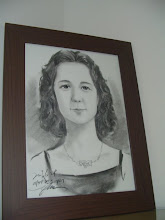by Susan U. Phillips
In Tonga, there are 3 gender ideologies: sister-brother, wife-husband, and sweetheart-sweetheart. The mother-son or father-daughter relationship is not as important. In Tonga, sisters are superior to their brothers, but husbands are superior to their wives.
Phillips goes over different ways of interpreting gender ideologies in a historical literature review.
INterest in gender ideologies began in the 1960s and 1970s, when feminists took Marxist philosophy and replaced class with gender. Lakoff brought the argument into linguistics.
Anthropology reformulated the argument in terms of public and private spheres, dichotomizing male and female spaces. Keenan/Ochs paper on Malagasy falls into this genre of research.
The anthropological literature found that female discourse often took the form of specific genres. The identification of genres led to interest in the diversity of gender ideologies.
The underlying basis of all this research is the idea that women have different thoughts than men.
More recent: gender ideologies as related to class and race, the gendering of workplaces, in terms of communities of practice and institutions, and in nations.
Subscribe to:
Post Comments (Atom)

No comments:
Post a Comment